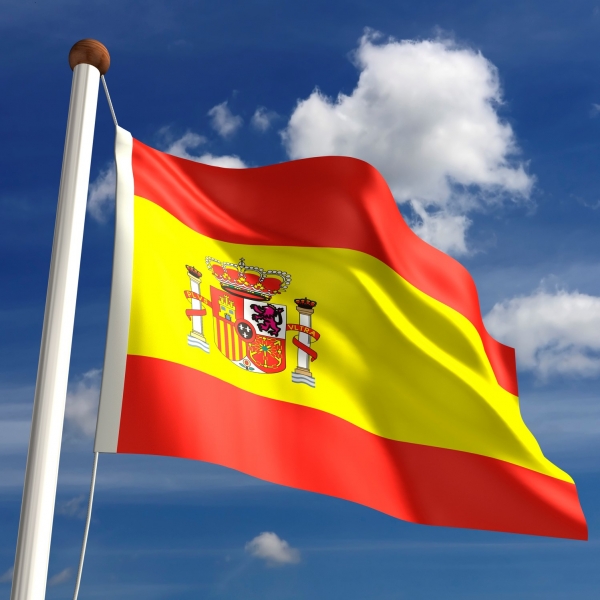Agencies in Spain demand regulation to protect the rights of children
UNICEF, the Spanish Association Against Cancer, Food Justice, and World Obesity member, the Gasol Foundation, continue to demand a regulation that protects the rights of children.
- The request coincides with the completion of the Royal Decree hearing on the regulation of food and beverage advertising aimed at children, in which opinions and contributions from stakeholders in the sector are collected.
- For this debate, the BMJ Pediatrics Open journal has published an editorial by Dr. Santi F. Gómez, Global Head of Research and Programs at the Gasol Foundation, and Dr. Luis Rajmil, renowned researcher in the field of social pediatrics, in which they review the need for this type of regulation.
- The World Health Organization recommends adopting the Nutritional Profile Model to limit the advertising of certain foods and beverages.
- The advertising of unhealthy food and drinks has direct consequences on the prevalence of childhood obesity, a silent pandemic that, along with living with overweight, affects four out of ten children in Spain.
The advertising of unhealthy food and beverages has a great influence on the consumption of these products which contribute, along with other factors, to the childhood obesity pandemic.
This type of advertising is already regulated in different ways in several European countries, thus protecting the right of children to grow up healthy.
In Spain, UNICEF, the Spanish Association Against Cancer, Food Justice, and the Gasol Foundation, foundation of the brothers Pau and Marc Gasol whose mission is to prevent childhood obesity, come together to continue insisting on the need to adopt regulatory measures that help address the great health risk that excess weight entails in children and adolescents.


The current Spanish proposal to regulate the advertising of foods and beverages with a high content of sodium, sugar, fat, and saturated fatty acids aimed at minors has just entered the debate phase between civil society and interested entities, including the food and beverage industry, which has so far been in favour of part of the legislation. This is a key moment, in which it will be decided whether to comply with the protection of children established by the Convention on the Rights of the Child, signed and ratified by Spain in 1990.
Currently in Spain, the regulation is in place called PAOS (Co-regulation of Food and Beverage Advertising Aimed at Minors, Prevention of Obesity and Health), which was adopted for the first time in 2005 and has not been reviewed since 2011. This measure partially depends on the self-regulation of the food industry, which in other European countries has proven ineffective in preventing advertising and marketing of unhealthy products to children.

An opportunity to lead by example
The legislation that is currently under debate is a key opportunity to make Spain a leader in the protection of youth health, in line with the National Strategic Plan for the Reduction of Childhood Obesity that was presented in June 2022, and which includes more than 200 measures to reduce excess weight in children and adolescents by 25% in the next eight years.
“Unhealthy food advertising especially affects children, who are more vulnerable to this type of stimuli. Advertisements directly affect the minds and emotions of minors: that is why Spain must protect their rights with this regulation”, commented Cristina Ribes, Executive Director of the Gasol Foundation Europe.

The current regulation proposal follows the Nutritional Profile Model (NPM) recommended by the World Health Organization, which determines the foods and beverages that can be advertised to minors according to which category or type of food it belongs to. This same model has been used in the United Kingdom since 2005, revised most recently in 2018. In Spain, legislation is proposed in which regulation is controlled by the Government, giving it the ability to impose fines on non-compliant companies, thus reducing violations of advertising, such as those that occur in the United Kingdom, where self-regulation is voluntary.
In France, advertising aimed at children under 12 years of age has not been allowed on the Internet or on public television since 2016, while on private channels all advertisements for unhealthy food and drinks, both aimed at children and adults, must be accompanied by a "healthy" message. Portugal applies restrictions on the marketing of unhealthy food and beverages 30 minutes before and 30 minutes after the broadcast of programs for children, as well as on websites, applications, and publications aimed at minors. In Sweden, since the 1990s, there has been a general ban on television advertising during programs aimed at children under 12 years of age.
Thus, the legislation currently under discussion may represent a before and after in the lives of Spanish children, putting Spain at the forefront in the protection of their rights. Said regulation is a prevailing necessity if wanting to comply with the Sustainable Development Goals (in which childhood obesity directly interferes with 14 of them), the Convention on the Rights of the Child, and the National Strategic Plan for the Reduction of Childhood Obesity, thus contributing to the improvement of the obesogenic environment that today facilitates the development of non-communicable diseases such as obesity and excess weight in children.
About the Gasol Foundation
According to data from the World Health Organization (WHO), childhood obesity is a phenomenon that affects 124 million children between the ages of 5 and 19 throughout the world. Specifically in Spain, 1 in 3 minors between the ages of 8 and 16 is living with overweight or obesity according to the STEPS study by the Gasol Foundation.
Faced with this reality, the foundation was created in 2013 by the brothers Pau and Marc Gasol, NBA players and All Stars, with the aim of preventing childhood obesity both in Spain and in the US.
With this purpose, the entity, a member of the World Obesity Federation, focuses its activity on the implementation of programs and initiatives to promote healthy habits - physical activity and sports, healthy eating, sleep, and the emotional well-being of minors and their families - and has become a leading entity in the promotion of healthy lifestyle habits and in its commitment to scientific research in the field of childhood obesity.